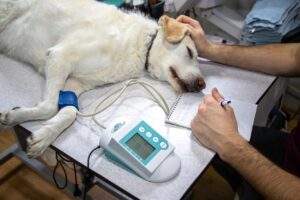Empowerment Through Knowledge: What to Expect During Psychiatric Care
Knowing what to expect from your first psychiatric appointment is vital. This includes understanding the cost and making sure your health insurance covers it.

Evaluation
In family psychiatric care, psych evaluation allows the psychiatrist to gather information about a person, including their medical history and symptoms. They may also ask about family history, as some mental health conditions are passed down through genes. Lab tests might also be ordered during this time.
During the interview, being honest and open with the psychiatrist is important. Withholding information can hamper the diagnostic process and prevent a viable treatment plan from being developed for you.
Once the evaluation is complete, the psychiatrist will develop a diagnosis that best matches your symptoms. They will then outline a treatment plan for you that typically includes medication and psychotherapy. You should find out if they accept your insurance or offer a payment plan.
Diagnosis
Psychiatrists often evaluate patients, make a diagnosis, and develop an appropriate treatment plan. The evaluation process is very similar to the physical examination you might receive from your primary care physician, which may take an hour or two. A psychiatric evaluation will ask questions related to your current state, symptoms, and history. During this time, being honest and open with your doctor is vital. This information will help them to make an accurate diagnosis. The information your psychiatrist will want to know includes any medications you are currently taking and any that you have taken in the past, any family history of mental illness, lifestyle factors such as alcohol or drug use, and stressors that have affected you. Some psychiatric conditions can also cause physical symptoms, so it’s important to mention any unexplained aches or pains you have experienced.
Treatment
Once the psychiatrist understands a patient’s symptoms, they will create an appropriate diagnosis and develop a treatment plan. This can include medications and counseling sessions.
Psychiatrists will ask the patient a lot of questions during an evaluation, including about their relationships, occupation, sources of stress, and any major traumatic experiences they have experienced. Many of these questions may feel invasive or intrusive, but they are necessary for the psychiatrist to accurately diagnose a patient’s mental health condition.
If a patient is struggling to cope with severe mental health issues, they may need an emergency evaluation to determine whether they pose a danger to themselves or others. These evaluations can be conducted over the phone or in person and can help prevent patients from being incarcerated due to their mental illness.
Medication
During the intake appointment, the psychiatrist, nurse practitioner (NP), or physician assistant (PA) will take your vitals, including blood pressure and temperature. They will also ask you for a detailed medical history and any major traumatic events in your life. They will likely also ask about any relationships, sources of stress, and your adherence to formal religious beliefs.
The doctor will also test your cognitive function by asking questions about your ability to concentrate, remember short lists, and recognize shapes and patterns. They will also ask you about any substance use or suicidal thoughts you’ve had recently. The doctor will check to ensure there is no physical cause for your symptoms. They will also check to see if any medications you are taking are contributing to the symptoms you’re experiencing.
Counseling
The psychiatrist will ask questions about your thoughts, feelings, and behaviors. These can feel invasive and intrusive, but they are crucial for determining an accurate diagnosis. They may also ask about your family history of mental illness, past surgeries, and medications you are currently taking.
The first psychiatric evaluation can take up to 1.5 hours. Often, it takes a few appointments for the doctor to make an exact diagnosis. It is best to bring a confidant along for the first visit so they can help remember critical details that you might forget.
Once the doctor is diagnosed, they will work with you on a treatment plan. This will most likely involve both psychotherapy or talk therapy and medication management. It is important to discuss any other medicines you are currently taking with the psychiatrist, as they might interfere with one another.







